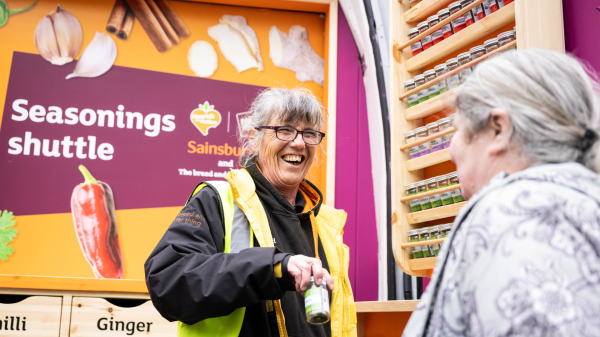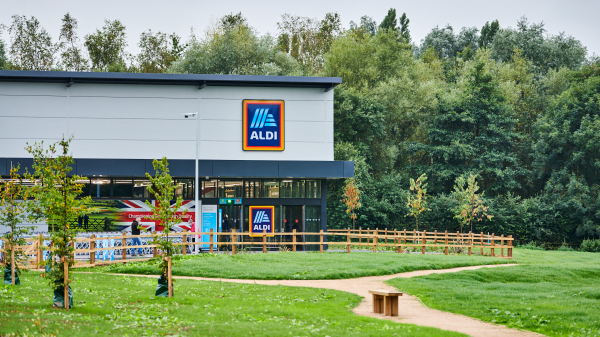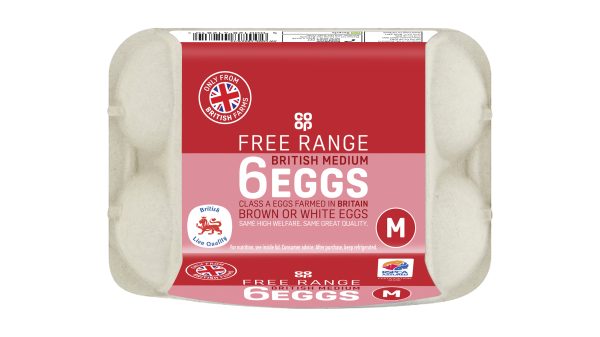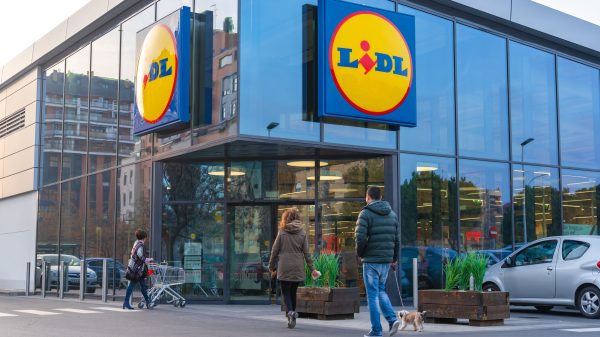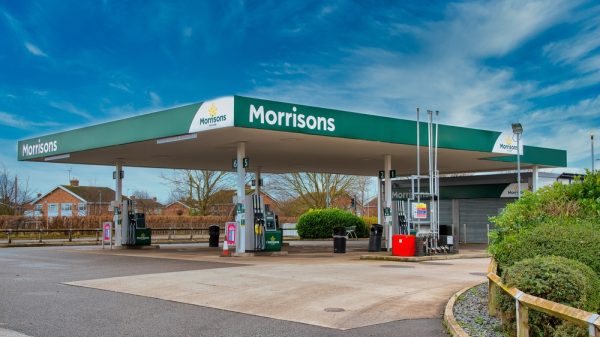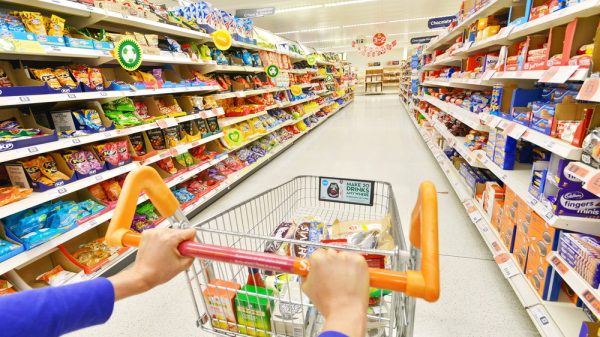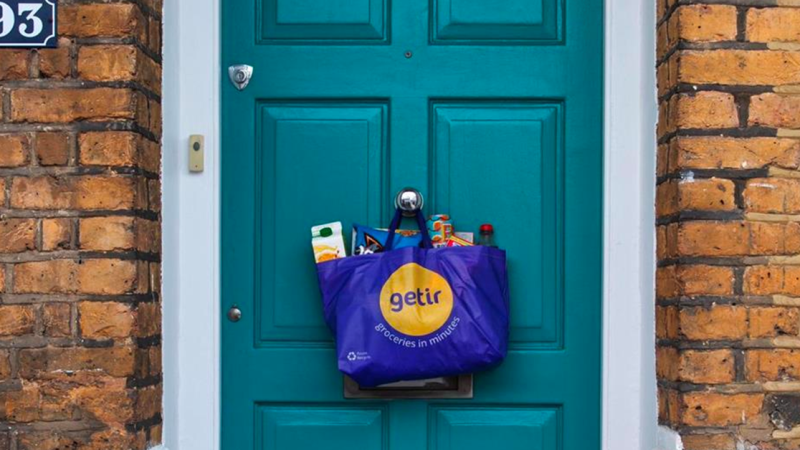World leaders, heads of state, climate activists and major business leads are currently meeting at COP27 – the largest annual gathering on climate action – to decide how to deliver the action needed to tackle climate change.
After a year of climate-related disasters and broken temperature records, the need for this action has never been more urgent. The summit will address an array of issues critical to tackling the climate emergency – from reducing greenhouse gas emissions to committing to finance climate action in developing countries.
The UK has a significant presence at the event, with prime minister Rishi Sunak in attendance, as well as a number of other notable names, including former prime minister Boris Johnson. UK businesses – including supermarkets and food and drink brands – will be watching closely to see if they have been doing enough.
Sustainability has long been a top priority for UK grocers, although a global pandemic and subsequent financial downturn have seen those goals shift slightly.
Earlier this week, Tesco, Marks and Spencer, Sainsbury’s, Waitrose and the Co-op all joined forces to accelerate climate action through their supply chains, pledging to agree standards and reduce their environmental impact by cutting down on both packaging and waste.
The pledge comes as WWF announced its goal of halving the environmental impact of food shopping by 2030 as it warned there was an “urgent need for accelerated action”
From Waitrose’s partnership with the WWF to Iceland banning the use of palm oil, then going back to it “with regret”, the different types of sustainability measures being introduced by the different grocer’s vary.
Despite, the idea of a more sustainable business model, which may currently not be at the top of a supermarket’s radar right now as a result of the ongoing cost-of-living crisis.
Surprisingly, more grocers have prioritised the S word and have unveiled a raft of initiatives to significantly reduce carbon consumption, highlighting recycling and calling time on single-use plastic.
So, what are these supermarkets doing to highlight the importance of sustainability?
Food waste
The head of buying and design of celebrations at Big 4 grocer Sainsbury’s, Abi Wilson, said the idea of sustainability is “not just a trend”, but instead a very important factor, which was “never taken into consideration” before the Covid-19 pandemic.
Just days after Wilson warned that sustainability is not a trend, the Big 4 grocer announced its new initiative, ‘Sainsfreeze’, which focused on reducing food waste. The supermarket giant opened a new concept store in Boxpark Shoreditch which educated customers how to freeze different types of foods and save surplus food going to waste.
Research from climate action charity WRAP said freezing food could help make a big dent in the £730 of food waste which British households throw away each year.
Discount grocer Lidl announced it would be stocking stunted fruit and vegetables in a bid to reduce food waste, while rival Aldi partnered with surplus food app Too Good To Go with the aim of cutting down on the amount of food waste generated in-store.
Tesco has taken its own approach to the matter; linking the issue with executive bonuses, in a bid to move its target of cutting food waste in half forward by five years, to 2025.
Tesco CEO Ken Murphy says: “By accelerating our target to halve food waste in our operations by 2025 and aligning executive pay performance targets to this goal, we hope to drive further transformative change,”
“However, the work we and our suppliers do won’t tackle the issue alone. We have long called for the government to introduce mandatory food waste reporting to help measure and judge if real action is happening. Action must be taken across the whole industry.”
Carbon emissions
Former Big 4 grocer Morrisons has recently announced a raft of carbon-friendly initiatives, including its partnership with The Prince’s Countryside Fund.
Its three-year commitment to the charity founded by King Charles will see 20 families being provided with an introduction to on-farm carbon opportunities. In August the grocer also became the first UK supermarket to launch its own range of carbon-neutral eggs.
Commenting on the announcement, Morrison’s head of agriculture Sophie Throup said: “This is our first carbon-neutral product and there will be many more to come.
“It’s all part of our drive to be directly supplied only by ‘zero emission’ British farms by 2030.”
Meanwhile, Asda is on track to become a net zero carbon business by 2040 and will be sourcing 50% of its electricity from renewable energy sources by 2025.
Owners Mohsin and Zuber Issa believe that climate change is an “urgent and devastating global problem”, adding that the problem presents “material risks to supply chains and our ability to achieve sustained growth now and in the medium to long term.”
As a result of this focus, the Big 4 grocer expanded refill ranges in its Leeds sustainability store, and partnered with MusicMagpie in a move which will prevent thousands of tonnes of technology and media products from going to waste.
Plastic waste reduction
Lidl recently became the first UK grocer to use packaging using at least 30% ‘Prevented Ocean Plastic’ (POP), in a bid to prevent over 40 tonnes of plastic from entering the ocean.
According to Lidl’s head of responsible sourcing and ethical trading Amali Bunter, the company is “proud” to have already prevented the equivalent of over 15 million plastic water bottles from entering the ocean.
Tesco is also focusing on packaging, removing the plastic bags from a range of its most popular bakery products.The move, which will remove 33 million pieces of plastic each year, is already being rolled out across the UK, affecting everything from bread to doughnuts.
Aldi has also been pushing hard with regards to cutting back on the amount of plastic waste it generates throughout the year.
From announcing the launch of its first-ever plastic-free easter egg to removing plastic packaging on baked beans and porridge pots, the discount supermarket even rolled out its soft-plastic collection point to all UK stores, in a move to help customers recycle the plastic waste it is still producing.
However, frozen food retailer Richard Walker said in July the retailer will not achieve its goal of becoming the first UK supermarket to be ‘plastic neutral’ this year, branding himself as a ‘hyprocrite‘.
In 2018, Iceland banned the use of palm oil in its own-brand products in a stand against tropical deforestation. However, the frozen food specialist reversed the ban earlier this year after seeing a shortage of sunflower oil in the week’s following Russia’s invasion of Ukraine.
Reduce, reuse and recycle
Despite recent reports of Aldi unlikely to deliver on its sustainability commitment of making all own-label packaging recyclable by the end of the year, the discount grocer announced one of the most notable sustainability initiatives in the past few months,
Aldi unveiled its new eco-concept store specifically designed to reduce carbon consumption, while also making it easier for customers to reduce, reuse and recycle.
The store, situated in Royal Leamington Spa, will allow the discount grocer to determine which plastic-reduction elements work best, both for customers and for reducing carbon consumption.
Some of these measures include packaging-free refill stations, recycling units and energy-saving initiatives such as solar panels and chiller doors, which will all be rolled out across the country if successful.
Supply chain
Earlier this month, Big 4 grocer Tesco partnered with non-profit organisation, Sustainable Fisheries Partnership (SFP) in a bid to protect ocean wildlife and improve industry seafood sustainability.
Earlier this year, Tesco also called on the UK government to ‘unlock innovation’ in UK food supply chains as it awards £750,000 to the winners of its innovation accelerator programme.
The innovation accelerator programme, which was run in partnership with conservation and wildlife charity WWF, paired pioneering supply chain start-ups with the Big 4 grocer’s suppliers as the supermarket hoped to fast-track sustainability innovation throughout its supply chain.
This came as a report suggested unprecedented pressure on supply chains has led to food buyers in the UK’s biggest companies reporting a 60% increase in food waste over the last six months
According to the report by Sodexo, 35% of respondents warned they will be forced to continue increasing their prices due to the difficulties in managing their supply chain, with 32% believing heir supply chain will not return to optimum efficiency for a full year.
Many agree with Sainsbury’s Wilson when she says that sustainability is not a trend, with some urging for more transparency and a clamp down on the claims that can be made by both retailers and FMCG brands regarding their sustainability measures.
The founder of sustainable marketplace Greenr, Thomas Panton, says that regulations need to be stricter regarding the types of products retailers are able to sell, if they are to have a real effect. “It all comes down to the retailer, what it brings into its stores and its supply chain,” he says.
According to Panthon, supermarkets are rolling out their initiatives now as a response to new regulations coming in.
“What the UK is seeing now is coming in response to the economic times,” Panthon says.
“We know that people are tightening their belts and looking at the most affordable option to feed their families rather than the most sustainable option.
“What we’re seeing from supermarkets is how can they relay and still keep produce affordable, in order for customers to continue to buy sustainable products and sustainable groceries in a way, which is still going to be affordable for the majority of the public.”
As a topical and ongoing issue, it is no surprise that many grocers are prioritising sustainability and acknowledging it is not simply a trend.

